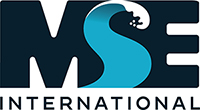Email News December 2015
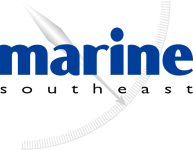
Welcome to the December 2015 email newsletter from Marine South East
If you would like to submit an article for consideration please email the text and a suitable image or logo to sj@mseuk.org
Posted 2015-11-03 08:40:15
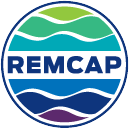
'Acceleration of Blue Growth agenda' key outcome of REMCAP project
Acceleration of the blue growth agenda is one of the key outcomes of the REMCAP European project which came to a close last month. Marine South East has been a major partner in the three year project.
For the past three years, the REMCAP project has been advancing measures to expand innovation capacity in the Blue Economy.
The oceans are playing an ever-increasing role within the global economy (as a source of energy, materials, food, leisure, and for transportation). Europe needs to expand its capabilities to maximise its presence in meeting these growing markets, and to ensure sustainability of our ocean resources. This presents immense challenges to the business and scientific communities, as well as to Governments.
The aim of the Resource Efficient Maritime Capacity
(REMCAP) project has been to capitalise on the opportunities
that have arisen from increasing commercial demand across
marine industries. The project focused on expanding the
capacity for innovation and growth across the key markets
of offshore wind; ocean energy; fishing; aquaculture; algae;
blue biotech; aggregates and dredging; sea bed mining and
a number of critical enabling technology areas such as
maritime autonomous systems, vessels and novel fuels.
The REMCAP project brought together 14 distinct partner
organisations from six European Clusters in England, France,
Ireland, Lithuania, Portugal and Sweden.
One of the original objectives of the REMCAP partners
at the start of the project was to ensure that the outputs produced during the REMCAP project would be built upon after the end of REMCAP. 6 project ideas for consortium building have been prepared by REMCAP partners, covering a wide range of topics.
For more details on these and the achievements and outcomes of the REMCAP project please visit http://www.remcap.eu/
To download the latest project newsletter please visit:
http://www.remcap.eu/project_deliverables/
Posted 2015-11-16 16:57:17

Greater Knowledge Transfer is key aim of the COLUMBUS knowledge Fellowship
COLUMBUS is a €4m Blue Growth project designed to ensure that outputs arising from publicly-funded marine research projects have positive societal benefit.
COLUMBUS will ensure measurable value creation, from EC investment into marine and maritime research, to contribute to sustainable Blue Growth within the timeframe of the project.
To do this, COLUMBUS has established a "Knowledge Fellowship", a network of nine full-time Knowledge Fellows whose role will be to carry out Knowledge Transfer. Working together as a team and active network, this combined critical mass will provide a multiplier effect to help achieve measurable impacts and to develop a blueprint for future activities in this field of work, ultimately contributing to the development of a thriving and sustainable "blue" economy.
These Knowledge Fellows will work across nine nodes, each with a specific focus area: aquaculture, marine biological resources, marine environment and futures, fisheries, marine governance and management, marine transport and logistics, monitoring and observation, marine physical resources, and marine tourism.
COLUMBUS expects to see its impact come from the consequences of improved knowledge uptake by the different marine and maritime stakeholders. Acceptance and use of knowledge in industry, policy, society and science depends on the awareness, perception and understanding these stakeholders have of that knowledge. To bridge this gap by developing robust and sustainable Knowledge Transfer systems, which can be easily adapted and used, is a key objective of the COLUMBUS project.
Marine South East are leading the 'Knowledge Transfer' work package with responsibility for coordinating the development, delivery and reporting of tailor-made plans to successfully transfer specific high potential 'Knowledge Outputs'.
For more information about the COLUMBUS project and its aims and initiatives please visit:
http://columbusproject.eu/
Posted 2015-11-03 08:47:25
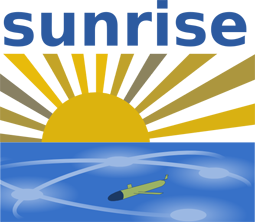
Project looking at seabed scour, erosion and silting welcomes interested parties to join interest group
The EXPOSURES project is working to establish a new marine information ecosystem and demonstrate how the ‘Internet of Things’ (IoT) can be exploited for marine applications.
Through the development and use of advanced underwater IoT infrastructures it will create novel disruptive data value chains. These will be invaluable in helping protect the marine environment and assisting with the sustainable exploitation of the sea's resources.
Focussing initially on seabed monitoring, using autonomous systems, EXPOSURES will show how new seabed bathymetric data can be integrated seamlessly with data and models from other sources (e.g. archived survey data) to generate high value information for a wide range of users of coastal waters and seabed resources.
The EXPOSURES pilot infrastructure is already designed, built and deployed at the 'SUNRISE' 'IoT' facility in Porto, Portugal and will be used to undertake a series of live field trials. These will cover two specific applications that have been identified which have significant socio-economic importance to the marine industry (scour around wind turbine foundations); and government agencies (managing erosion and silting). During the project evidence will generated which will contribute directly to the technical and business validation of the EXPOSURES platform.
Although the project will be focussed on the two initial uses, establishment of this innovative technology will enable it to be used across a broad range of marine applications.
To ensure the technology is developed to full effect, the project partners IT Innovation (University of Southampton) and Marine South East are facilitating the EXPOSURES 'Interest Group'. Through this, potential end-users and other interested parties from the marine industry, government agencies and scientific community will be able to learn more about the project. They will be able to engage with the project team and contribute directly to developments maximising applicability, commercial potential and fostering market creation.
Group members will be first to see public project information and will be invited to attend the workshops and networking sessions as the project progresses.
Membership of the Interest Group is free. To join please visit
http://www.groupspaces.com/EXPOSURES/
and click on the green 'Join' button.
Presentations from the initial stakeholder workshop, held in October 2015, are available to view on the Group Spaces website.
'EXPOSURES' stands for 'Experimental Testing of Semantically enriched and Fused IOT data streams for the evaluation of marine environmental processes and risks'.
The 12 month project will aim to demonstrate that the EXPOSURES platform is viable and by summer 2016 the intention is to have a stakeholder consortium and strategy to take the technology to the next phase.
Field trials in early 2016 and will be followed by a Validation Workshop hosted by HR Wallingford in early April (tbc) to which all 'Interest Group' members will be invited.
Posted 2015-11-18 14:26:08
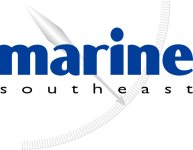
More sophisticated autonomous ocean sampling techniques key aim for new project
The oceans are under researched both in time and in space. Tackling the lack of research with large fleets of research ships would be extremely expensive in terms of capital and operational expenditure.
Sensors on small numbers of orbiting satellites give a good global picture of the surface of the oceans but they are limited in resolution and do not give sub-surface data; they are also very expensive. Over the last decade there have been an increasing number of profiling floats and surface drifting floats but both only move with the current and give large scale global measurements. For detailed observations we need control over where, as well as what we measure and to have higher sampling frequency in both time and space.
Underwater and surface autonomous vehicles provide a possible solution. Present-day Marine Autonomous Systems (MAS) need to be pre-programmed with trajectories by humans which can often be restrictive. The SOFA project, Sampling Ocean Features Autonomously, will focus on developing new more sophisticated techniques of autonomous ocean sampling networks which do not rely on human pre-programming. These could be of scientific interest and commercial relevance to:
* Cetacean tracking
* Following a tidal mixing front
* Identifying the source of a single point leak such as a surface oil spill
* Tracking fish implanted with acoustic tags
* Seabed mapping
At the core of the SOFA project is a system that will remove the human operator and allow the vehicle to use the data being collected to direct it towards a pre-planned goal. A further outcome of the project will be to define and develop a commercialisation strategy to maximise the commercial impact and use of the intellectual property created. Specific areas which could potentially benefit from the outcomes of the SOFA project include:
* Seabed surveying for the oil, gas and renewable energy sectors
* Pipeline and cable tracking for the energy sector
* Scour and other geotechnical monitoring
* Environmental monitoring including fish and cetacean tracking
* Tidal mixing and ocean front tracking
* Ecosystem management
* Algae bloom detection
* Oil and other chemical spill detection and tracking
* Dredging and subsea mining operations
The SOFA project is part of the NERC/Innovate UK/Dstl Adaptive Ocean Sampling Network, Small Business Research Initiative (SBRI) programme. The partners of the project include the University of Exeter, who are project lead, Marine South East and the Meteorological Office.
Posted 2015-11-18 13:53:10
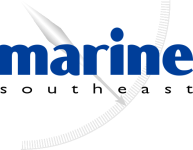
Marine South East working on proposal for funding to promote cleaner inland shipping
A European consortium, which includes Marine South East, is putting together a proposal for a project to promote clean inland waterway transport.
The CLINSH (Clean Inland Shipping) consortium will see public and private organisations from Holland, Belgium, Germany and the UK working together.
The main objective of CLINSH is to improve air quality in urban areas by accelerating emissions reduction on Inland Waterways Transport which can be a major source of air pollution.
An application for funding for the CLINSH project was recently submitted to the European fund LIFE. If successful the project will look at the performance of various emission reduction techniques, alternative fuels and onshore power supply on a variety of 30 vessels.
The results of the real life monitoring will then provide a tool for local, regional, national and European governments for new policies regarding the 'greening' of waterways. In addition the data will provide vessel skippers and operators with more information and insight into the most cost effective environmental measures for their ships.
The province of Zuid-Holland is the lead partner in the CLINSH project with regional Minister Rik Jannsen acting as Ambassador of the project. Marine South East is a partner in the project.
More information on the project will be circulated once funding has been approved.
Posted 2015-11-12 16:11:14

Are you claiming your R&D tax credits?
The R&D Tax Credit scheme is aimed at enabling SMEs to recover development costs invested in innovative product and manufacturing processes.
Over £1.4bn was given back to 15,930 UK companies in the 2012-13 tax year but 150,000 companies potentially qualify.
How do you qualify?
To qualify you need to be a UK Limited Company that has been in business for at least 12 months and do any of the following:
* Design and produce new products.
* Regularly change the way you make your products.
* Develop or improve your manufacturing processes or services.
* Develop or appreciably improve materials or devices.
* Develop samples, prototypes or undertake testing.
* Develop software, IT solutions or products in-house.
* Invested in failed projects or developed products not launched.
* Employ any staff with a technical or scientific background.
* Do you employ fewer than 500 people? More than 500 qualifies for the large company scheme.
Qualifying expenditure
* Internal staff costs
* Sub-Contracting costs
* Consumable costs which relate to development work
* Prototypes and expenditure related to manufacturing trials
* Utility costs including heat, light and power
* Failed projects count towards the scheme
You can claim back two financial years and your current year which could potentially deliver significant and timely cash injection for your business. A claim can then be made every year going forwards.
The average annual claim value is £46,000 pa for SME's, and for large companies it's £320,000 pa.
For more information visit:
https://www.gov.uk/guidance/corporation-tax-research-and-development-rd-relief
Posted 2015-10-08 10:09:24
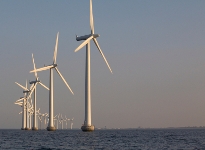
Offshore Wind seminar and networking event at the Danish Embassy in London, 3rd December 2015
On Thursday 3rd December the Danish Embassy in London will host a seminar that offers an overview of current and future developments in UK offshore wind industry. The seminar will provide answers to what we can expect in 2016 in terms of policy developments, market opportunities and technical advances.
The seminar will provide contributions from speakers from The Crown Estate, ScottishPower Renewables, E.ON Climate & Renewables, Statkraft, Dong Energy, Forewind and Vattenfall.
The event will take place on Thursday 3rd December 2015 at the Danish Embassy, 55 Sloane Street, London, SW1X 9SR.
To receive a registration form please email rastra@um.dk
Posted 2015-11-20 11:48:29
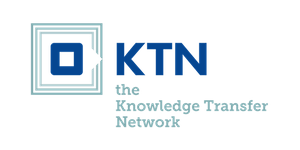
Exploring Innovation in Additative Manufacturing and Rapid Prototyping in the marine industry, 10th December 2015, Plymouth
The Knowledge Transfer Network are hosting this event which is Exploring Innovation in Additive Manufacturing and Rapid Prototyping in the Marine and Maritime Industries.
This event is aimed at those working in the Marine and Maritime industries and interested in seeing where Additive Manufacturing also referred to as 3D printing might apply in this sector. This event provides delegates with an overview of the opportunities this technology can offer and a further opportunity to input into the developing UK Additive Manufacturing strategy.
Furthermore the UK Marine Industries Technology Roadmap launched earlier this year cited Additive Manufacturing as a contender in; design and manufacturing, robotics/automation, composites and other materials and tooling.
In particular this workshop will set the scene for what is possible with current technology and where it might apply in Marine and Maritime applications. We are also inviting businesses working within these areas to identify manufacturing challenges they currently have that this technology could potentially solve.
The event will comprise of a morning of talks setting the scene and helping you to understand and appreciate the scope for Additive Manufacturing/3D printing and rapid prototyping applied to your business. We will also be informing you of the governmental strategy currently underway to help bring this technology to the forefront of UK manufacturing and ensure the UK retains the world leader in exploiting this technology.
The afternoon will be your opportunity to have a voice in shaping the strategy as it develops and to include the needs and opportunities for the maritime and marine industries to be able to best take advantage of the technology. We will achieve this by asking you to participate in a facilitated session to give your ideas, input and rationale that will be fed into the outputs of the strategy in the near future.
For more information and to book your place at this free event please visit:
http://tinyurl.com/nnmhojp
